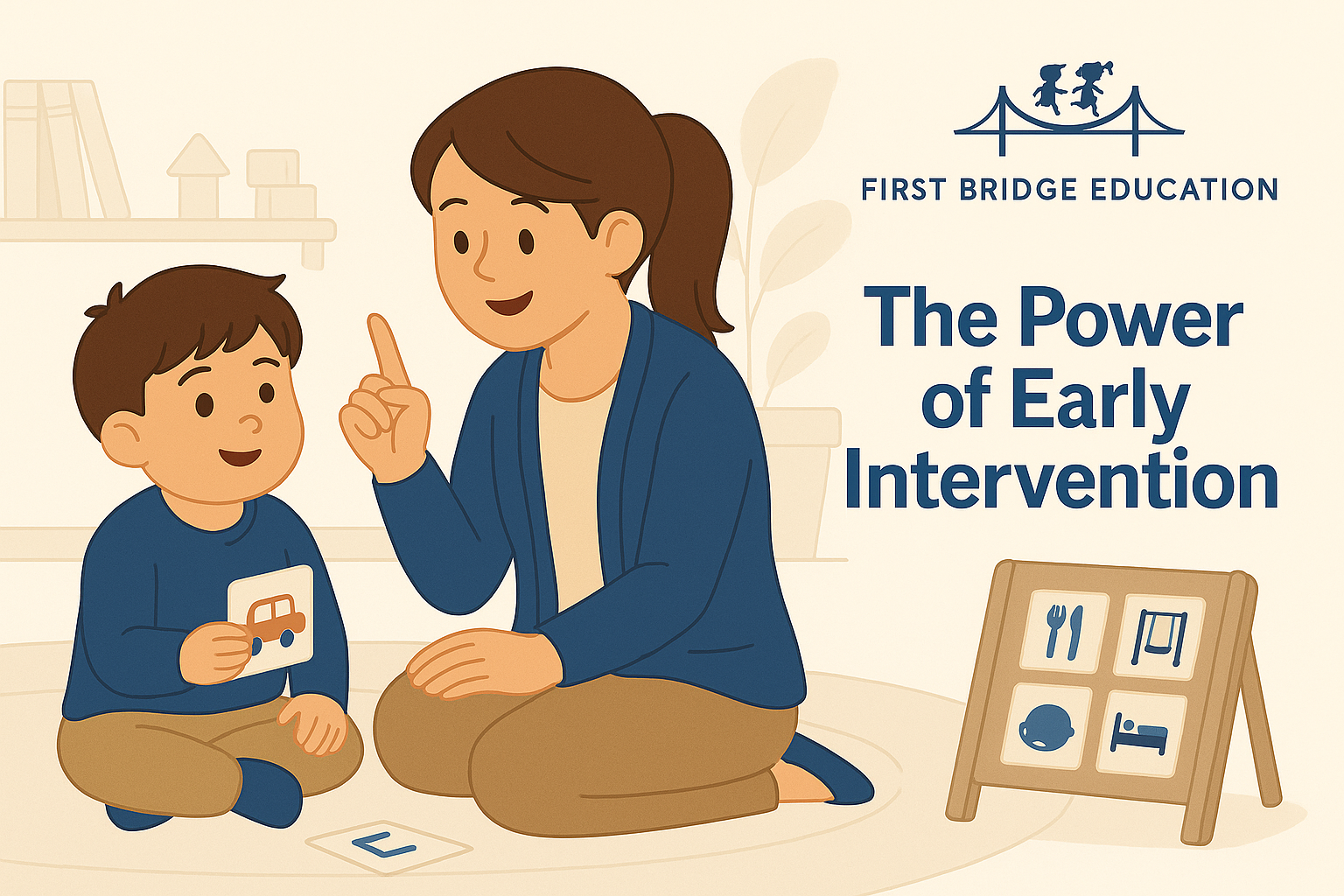
Why Early ABA Therapy Matters
At First Bridge Education, we believe every moment matters, especially in the early years of a child’s development. When it comes to autism spectrum disorder (ASD) and related developmental conditions, we don’t believe in a “wait and see” approach.
Delaying support can mean missed opportunities during a child’s most critical learning window. Applied Behavior Analysis (ABA) therapy, when started early, can significantly influence how a child communicates, interacts, and learns to navigate the world. Here’s why acting early is so important:
Enhanced Brain Plasticity: The Window of Opportunity
Between birth and age three, the brain is undergoing rapid development. This is a period of high neuroplasticity when it is most adaptable to learning and change.
- ABA therapy during this window is highly effective, laying the foundation for lifelong learning, behaviour, and emotional growth.
- Delaying support during this period risks letting challenges become more deeply rooted and harder to address later on.
Improved Communication and Social Interaction Skills
Language and social development often take longer for neurodivergent children, and these are exactly the skills early ABA is effective at building.
- We teach communication using verbal strategies, picture exchange systems (PECS), sign language, or assistive technology. The way we teach these essential skills is tailored to each child.
- ABA therapy also supports early social behaviours like attention, turn-taking, and emotional regulation, giving children the tools to connect with others meaningfully.
Reduction in Challenging or Disruptive Behaviours
Without support, children with special educational needs may develop patterns of behaviour that are hard to manage, such as head banging, aggression, meltdowns, or resistance to change.
- Our approach proactively identifies and replaces those behaviours with positive alternatives.
- Acting early prevents these behaviours from becoming entrenched, reducing stress for both the child and family.
Better Preparation for School and Structured Environments
The transition to nursery or school is a huge milestone, and it can be daunting without the proper support.
- ABA therapy builds essential school-readiness skills like following routines, sitting for circle time, focusing attention, and self-regulation.
- Children who receive early intervention are better equipped to adapt to group settings, giving them a smoother start to their educational journey.
How First Bridge Education Leads in Early ABA Therapy
At First Bridge Education, we deliver expert-led early intervention through compassionate, personalised care. We’re here to guide families from the moment they notice concerns.
Individualised ABA Therapy
Every child’s development is unique. Our BCBA® led team designs custom ABA plans based on detailed assessments and regular progress reviews.
Experienced, Credentialed ABA Professionals
Our therapy programmes are delivered by trained therapists and are designed and overseen by Board Certified Behavior Analysts® (BCBA®), ensuring the highest standard of care.
Parent Training & Family Support
We include ongoing parent training so you feel confident reinforcing your child’s learning at home. You are an essential part of the progress.
Year-Round Consistency
With full-time and part-time nursery placements available 46.5 weeks per year, your child receives consistent support in our nurturing, purpose-built environment.
Integrated EYFS Curriculum
We blend ABA with the Early Years Foundation Stage (EYFS) framework, supporting both therapeutic and academic development in one place.
We Don’t Wait, And Neither Should You
If you’re concerned about your child’s development, don’t wait and see. Early intervention can completely transform their future and give you clarity, support, and a path forward.
The sooner we start, the greater the opportunity for growth.
